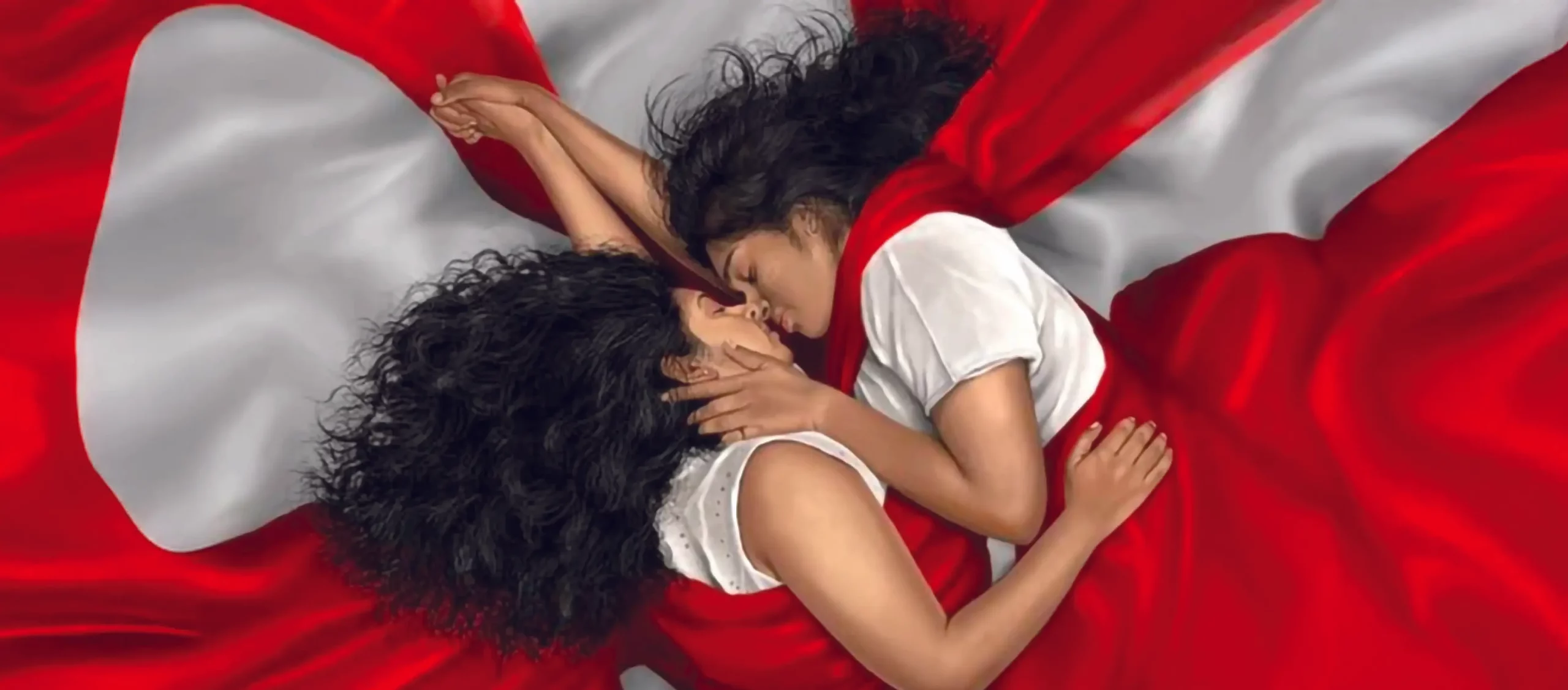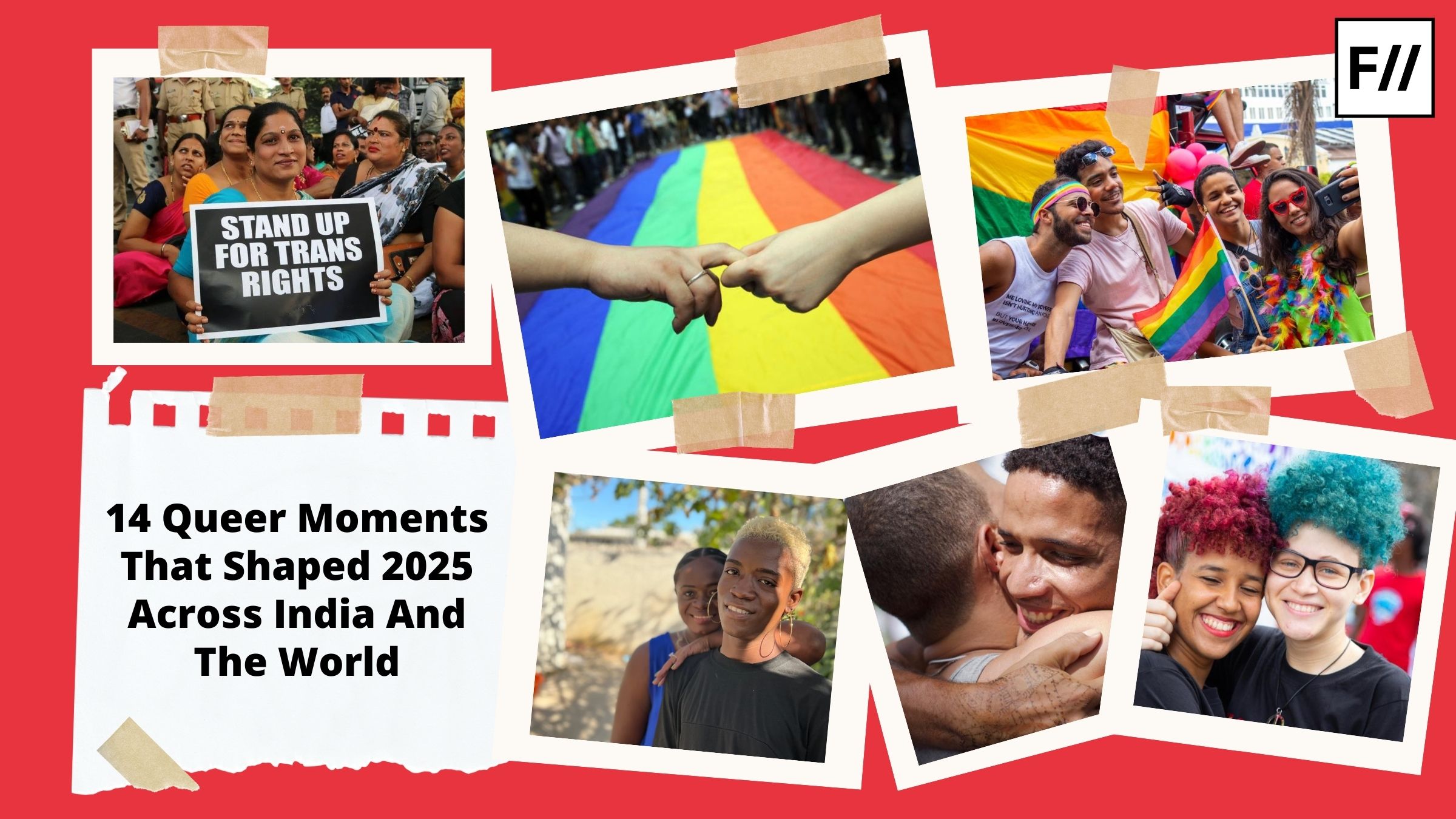Posted by Smita
I was 12 when I first liked another girl. But I didn’t realise this till I was nearly 20. Back then, I just thought that I wanted to be “best friends” with her. I’m currently 24 and it’s been five years since I came to terms with the fact that I am queer and embraced it. Now, I know very well that everyone’s coming out or not coming out experience is unique. I’m writing this piece because when I was in the beginning stages of my queerdom, if I may, reading about other queer people and talking to more helped me tremendously.
Before I speak about coming out, I want to say this; do not come out till YOU are ready for it, because that might do you more harm than good. Don’t let friends, queer and otherwise, tease you into coming out. You are the one who has to live with the consequences, both good and bad. Be as open about who you are and who you like as YOU decide.
Now, to the coming out bit. When did I come out of the closet? The thing is I don’t think it’s just one instance. I’m still coming out. Coming out to new friends, acquaintances, roommates etc. I came out to someone as recent as last week! I’m yet to come out to my parents, though my brother knows. No one can ever come out all at once.
If you’re lucky, you’ll have positive reactions all around, or at least mostly positive reactions. I was largely lucky. My best friend, NN, cheered loudly when I came out to her and excitedly asked me to use my gaydar to point out all the queer nuns in our Catholic college. When one of my queer friends killed herself, NN held a sobbing me protectively and said, “Cry all you want. But you cannot give up. I won’t let you give up.” SK, a random online friend who became my queer mentor of sorts, introduced me to the queer community in Chennai and then Mumbai, helping build my support system. AB told me that it doesn’t matter if my parents ever kick me out because I’ll always have her home to come out.
I was outed to my then roommate, but she never said a word about it to me or others before I chose to. She would change in front of me in our shared room like before and always made it a point to discuss queer readings assigned to her in class, showing her silent support. When 377 came back, a ton of them messaged me asking if I was okay and told me call them if I wanted to rant. I did have a friend who threatened to out me to my parents if I didn’t “change my mind” and another who refused to sit anywhere near me after they figured out, but they fade away into the background in front of all the other wonderful people who stand by me.
I write in the hope that it will make a young queer girl somewhere feel a little less alone, like how the blog and tumblr posts made me feel less alone. Below are some things which I picked up along the way from people way smarter and nicer and awesomer than me.
1. Support System
Form your support system. You’ll need it for breaking down the closet, be it the queer community in your city, your online friends, your offline ones, family, college etc. You need people who will send you care packages across cities to cheer you up after your not-so-public break up, and those who will be overly involved in your love life (or the lack of it). You need those among whom you can weep and still be seen as a warrior.
2. Queer Friends
Have queer friends. Maybe this is just something I feel, I don’t know, but being only around non-queer people, even tremendously supportive ones, gets to me after a certain period of time. This is simply because there are some things which my non-queer friends will not understand even if I explain to them. It’s not like they don’t want to, but they simply cannot due to the sheer lack of exposure/experience in respect to this. I found my first queer friends online before I knew any in my offline world. The internet can be very helpful to us queers.
3. Read. Read read read!
When coming out of the closet as gay/lesbian/transgender/bisexual/queer is a good first step, please please don’t stop there. Understand the politics of who you are. Understand that your identity as a queer person is never just that. I’m not just a queer woman. I’m a Hindu by birth, atheist/agnostic by choice, lower caste, middle class, dark-skinned, non-feminine Tamil queer woman. All these adjectives are a part of my queerness as my queerness is a part of them. Read books, articles and blogposts written by queer theorists, persons of colour, queers from different class, caste and religious backgrounds, those younger as well as older to you. Listen to people when they talk about the politics of all this. Ask questions about the things which you don’t understand. You may or may not accept it, but personal is very much political.
Also read: 15 Books You Must Read To Understand Same-Sex Sexuality In India
4. Queer Up Things
Keep queering things. I think that the first 46 sec of Dheere Dheere Se Mere Zindagi Mein Aana and the whole Main Hoon Na title track seem like they are meant for a gay couple. Priiyanka Chopra and Deepika Padukone seem like they don’t need Bajirao at all in Pinga and that Hone Do Batiyaan sounds like a potential lesbian love song. The no-homo ending of The Cursed Child annoyed me very much #Scorbus. Point this out to your friends. Tweet it out. Post it on Facebook. Write about it. Rant about the heteronormativeness of it all, and challenge it. Queer people have been forced to look for clues and decipher codes that haven’t been explicitly claimed by heterosexuality. In the lack of our representation, we projected our lives and desires onto different scenes, songs and characters. All for a little bit of hope, though not exactly happiness. Having grown up watching Shah Rukh Khan woo Kajol or Rajnikanth charm Soundarya, we need to keep seconding guessing relationships and fantasizing. The relatively higher queer visibility in non-Indian pop culture will only go so far.
I will end by saying why I wanted to come out when I could have easily lived by just changing a few pronouns here and there or using gender neutral ones. Life would have been easier, no? Personally, I just could not lead that much of a double life. The more pronouns I changed and male crushes I made up, I felt an increasing weight on my shoulders. The need to constantly have a straight mask on took a toll. When I came out, I felt physically lighter. Being true to myself did. Being not just accepted me but celebrated helps in reaffirming everything that you felt in a world which tries to tell you that you’re not ‘normal’. After I felt the high of being truly myself, it was not possible for me to go back in there. Every time I’m forced to do it for even a short period of time, I feel the need to burst back out. I refuse to stay hidden and stay silent.
You may also like: My Experience Of Coming Out As A Bisexual Woman In India
About the author(s)
Guest Writers are writers who occasionally write on FII.




